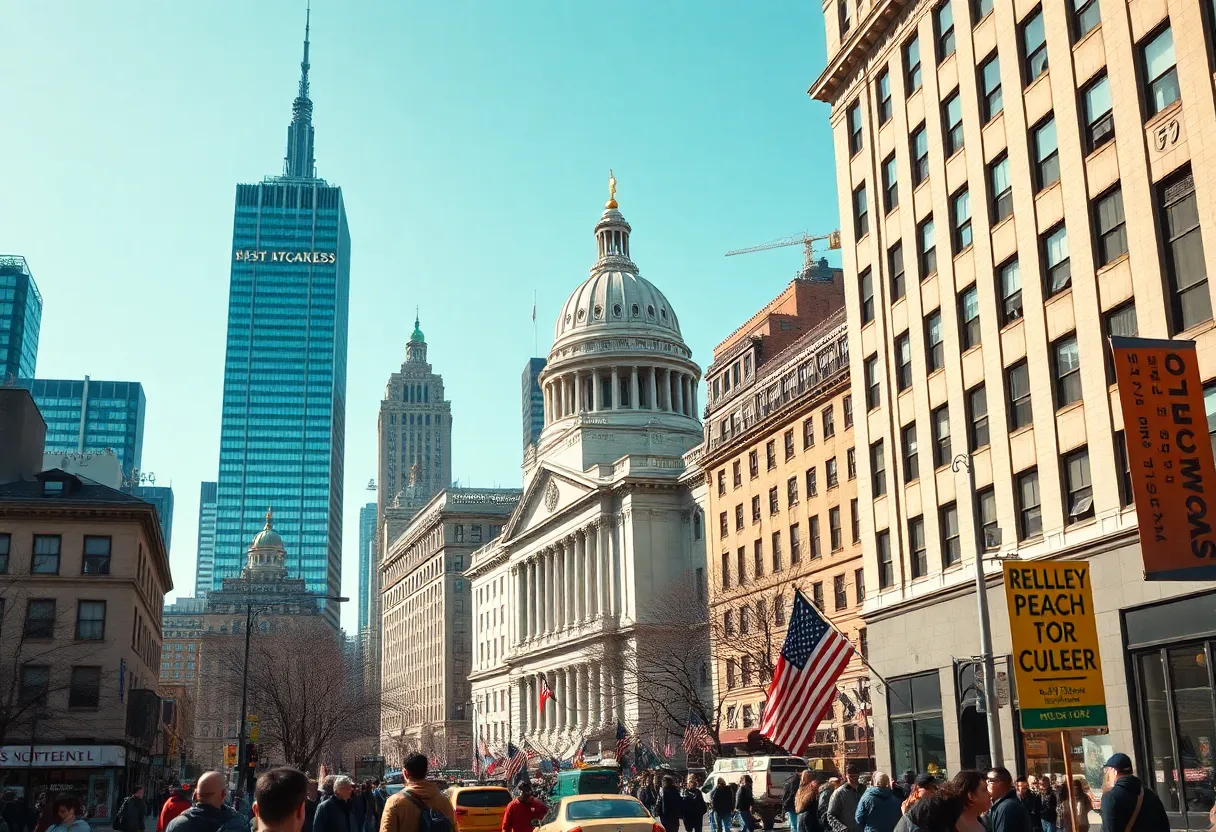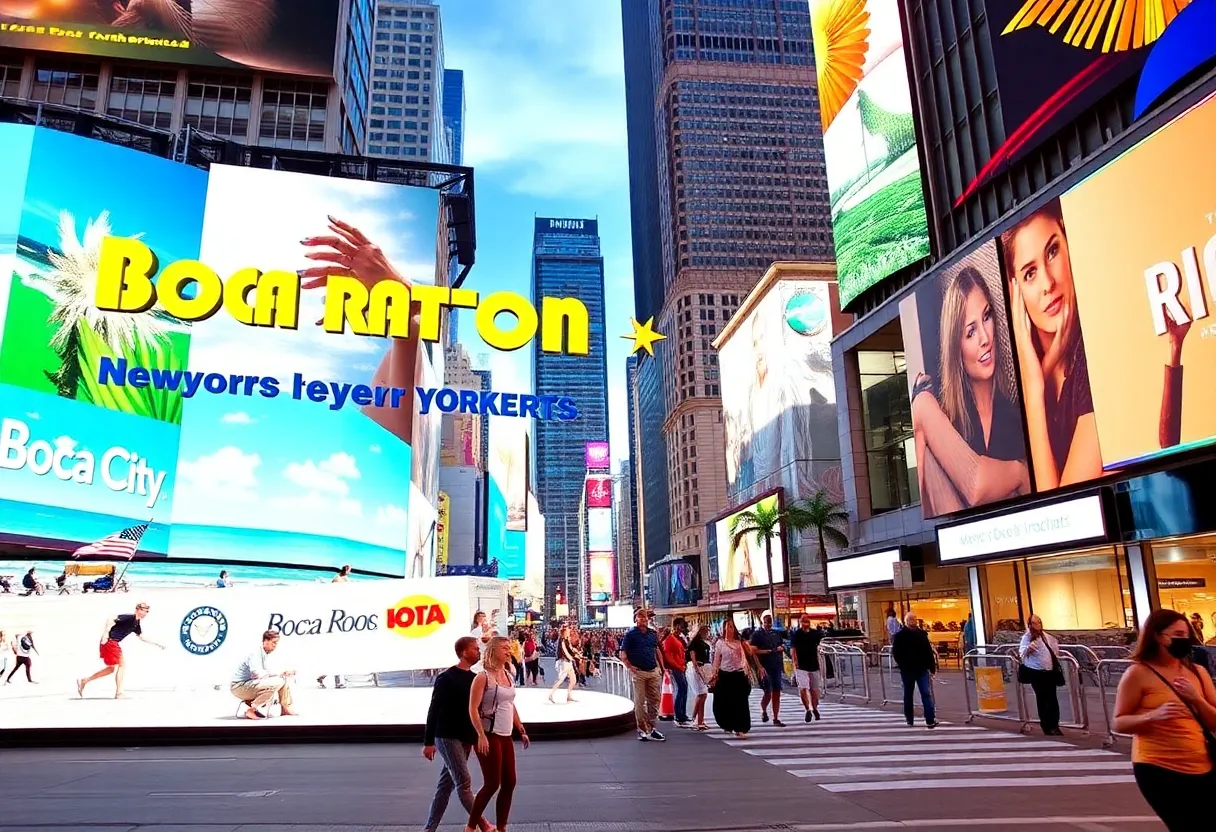News Summary
The New York City Campaign Finance Board has denied Mayor Eric Adams millions in public matching funds, prompting him to withdraw from the Democratic primary. This ruling, linked to straw donor issues, creates financial challenges for Adams and might reshape the mayoral race. Rising economic concerns among New Yorkers, including food prices and small business viability, further complicate the political landscape. Council Speaker Adrienne Adams is also awaiting a CFB decision on her potential matching funds, adding uncertainty to her campaign.
New York City – The New York City Campaign Finance Board (CFB) has made the significant decision to deny Mayor Eric Adams millions in public matching funds, leading him to withdraw from the Democratic primary. This development is expected to significantly alter the dynamics of the mayoral race in the coming months as Adams faces challenges stemming from the financial implications of the CFB’s ruling.
The CFB’s denial was primarily due to issues concerning straw donors, resulting in a legal situation that Adams’ legal team indicated would force his exit from the primary contest. This ruling places a considerable financial burden on his campaign, as he will now have a substantial gap in funds necessary for effectively launching an independent campaign ahead of the general election. The implications of this financial shortfall are particularly dire given that just 24% of New Yorkers feel the state is on the right track, with rising concerns about economic conditions affecting the electorate’s decision-making.
Rising food prices have become a pressing issue, with 80% of New Yorkers expressing deep concern. In addition, 74% of citizens are worried about the impacts these rising prices may have on local small businesses, emphasizing a significant need for action from Albany to address these economic troubles. The political landscape is further complicated by the upcoming decision from the CFB regarding Council Speaker Adrienne Adams, who hopes to qualify for approximately $2 million in matching funds. As a recent entry into the race, her polling numbers are lower than those of her competitors, although she does have the backing of a notable union and Attorney General Letitia James. Without access to these funds, her campaign’s viability may be diminished significantly.
This decision by the CFB comes amidst a backdrop of its historical influence in mayoral races, where it has often been at odds with sitting mayors, having established a precedent of rigorous enforcement of campaign finance laws. Past instances include the denial of funds to former candidates like John Liu in 2013 and ongoing investigations concerning campaign financing practices involving Andrew Cuomo. Such instances highlight the board’s critical role in shaping election outcomes in New York City, a setting known for its stringent public financing system.
The current circumstances also shed light on the broader economic sentiment in New York City. As candidates gear up for the upcoming elections, discussions are erupting regarding various legislative measures. For instance, a proposed bill to ban non-compete clauses is facing significant backlash from private sector groups, who argue that it could harm the economy. A six-figure advertising campaign opposing the bill is planned as the legislative session nears its conclusion. Supporters of the bill, however, believe it addresses fundamental issues relating to wages and labor market dynamics.
Meanwhile, candidates for New York City Comptroller have exhibited caution regarding criticism of mayoral front-runner Andrew Cuomo amidst recent debates. There is also mounting pressure on Mayor Adams to take a firmer stand on immigration issues, particularly concerning a Bronx high school student recently detained by immigration authorities. Lawmakers have expressed disappointment in Adams’ relatively muted response to these emerging concerns.
In addition, legislative amendments allowing grocery stores to sell wine signal attempts to support smaller businesses, although this move has drawn ire from liquor store owners. Recent amendments have lowered the required square footage for grocery stores to obtain wine licenses while promoting local wineries.
Finally, political tensions surrounding immigration practices in New York City have heightened, with Representative Dan Goldman confronting federal agents regarding their treatment of detained migrants, likening the situation to oppressive conduct. This compounding of issues contributes to the complex political landscape Adams finds himself navigating amid significant public unease over economic conditions and pressing social issues.
In summary, with the CFB’s ruling drastically reshaping Eric Adams’ political trajectory and casting uncertainty over Adrienne Adams’ campaign efforts, New York City’s upcoming elections may see dynamic shifts in voter engagement and candidate positioning as economic and social challenges intensify.
Deeper Dive: News & Info About This Topic
HERE Resources
U.S. Court Blocks Trump’s Global Trade Tariffs
New York City’s Congestion Pricing Toll Generates $215.7 Million
Elise Stefanik Targets 2026 New York Gubernatorial Race
New York State Announces $254 Billion Budget Agreement
Federal Judge Blocks Trump Administration’s Action Against NYC Congestion Pricing
Elise Stefanik Positions for New York Gubernatorial Race
Federal Judge Blocks Funding Cut for New York’s Congestion Pricing
Cannabis Companies Begin Claiming Exemption from Section 280E
New York School Districts Achieve High Budget Approval Rate
New York State Legislature Passes Controversial Budget
Additional Resources
- AMNY: Charles Rangel Obituary
- Wikipedia: New York City
- Spectrum Local News: Hochul on DOJ Targeting
- Google Search: New York City Campaign Finance Board
- NY Times: Trump Politics and Democrats
- Encyclopedia Britannica: Kathy Hochul
- Axios: Trump in New York City
- Google News: New York City 2025 Elections








